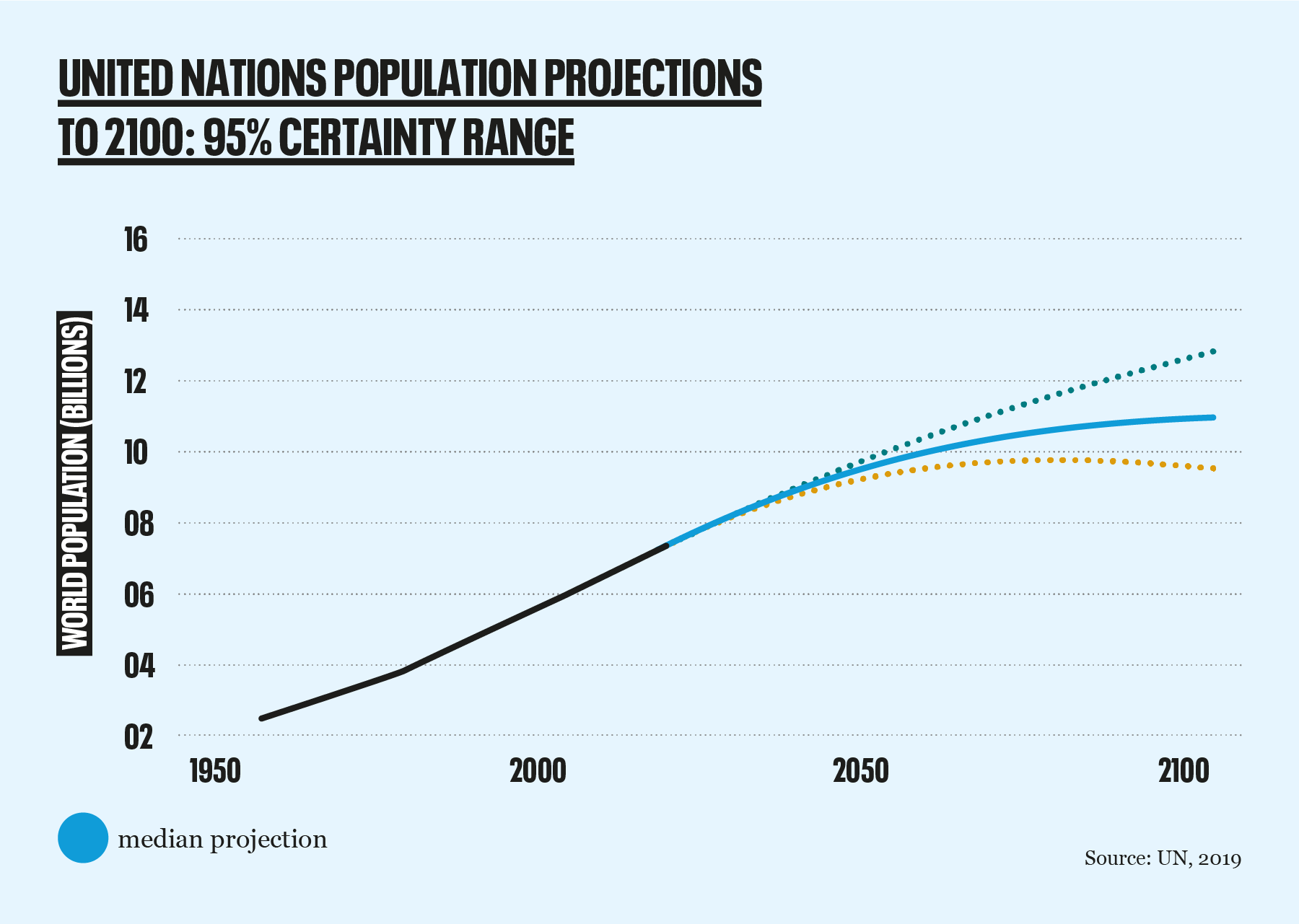
Time to talk population again
This week, representatives from Population Matters will attend one of the most significant global meetings on population and development in recent years, the Nairobi Summit on ICPD 25. They will be taking the message that securing sustainable population is an essential goal, that it can and must be done through means that respect and enhance individuals’ rights – and that failure to recognise this has led to the promised benefits for people and the environment being delivered too little, too late.
The Summit marks the anniversary of the International Conference on Population and Development (ICPD) in Cairo in 1994. That meeting placed reproductive health and rights, women’s empowerment and gender equality at the heart of the development agenda, and is widely seen as a move away from policies intended to address population challenges, as such. At Population Matters we strongly endorse the goals of empowerment and sexual and reproductive health and rights (SRHR), but we’re concerned that government and family planning policy since Cairo has both neglected sustainability, and failed to deliver on its goals.

Much to do
ICPD set out a Programme of Action intended to secure ambitious goals regarding family planning uptake and child and maternal health. Despite some progress, 25 years on, most of its goals have not yet been met:
- The proportion of women using modern contraceptives has increased by only 6% – from 52% globally to 58% today
- Almost half of all pregnancies are estimated to be unintended
- More than 800 women die every day from causes related to pregnancy or childbirth.
Population and Women’s empowerment in Kenya
Cairo’s goals
The Cairo programme strongly affirmed the right of all people to freely decide how many children to have and when – a principle we strongly support at Population Matters. It also acknowledged, however, the potential problems arising from those choices:
‘In the exercise of this right, [prospective parents] should take into account the needs of their living and future children and their responsibilities towards the community. The promotion of the responsible exercise of these rights for all people should be the fundamental basis for government- and community-supported policies and programmes in the area of reproductive health, including family planning’. (Paragraph 7.3 [4])
The programme was also explicit in its support for the linking of population policies and sustainability, calling on states to:
“promote appropriate policies, including population-related policies, in order to meet the needs of current generations without compromising the ability of future generations to meet their own needs.” (Principle 6 [4]) That emphasis on sustainability has been too frequently neglected in the quarter-century since Cairo.


Population pressure
Population growth – driven substantially by large family size – is now recognised by a growing body of scientists as playing a key role in numerous significant environmental problems.
- Last week, 11,000 scientists signed a Climate Emergency Warning calling for action to address population growth through voluntary means as a key mechanism to fight climate change.
- A major international study in 2017 ranked universal access to female education and family planning as the number one most effective, currently available practical solution for cutting climate emissions, due to their effects in reducing population growth.
- The Intergovernmental Science Policy Platform on Biodiversity and Ecosystem Services in May 2019 identified population growth as a key indirect driver of massive biodiversity loss and called for “transformational change” to address such drivers.
- Research published in the July 2017 Proceedings of US National Academy of Sciences concluded that “the ultimate drivers of those immediate causes of biotic destruction [are] human overpopulation and continued population growth, and overconsumption, especially by the rich.”
- The World Scientists Warning to Humanity of November 2017, endorsed by more than 20,000 scientists, identified “continued rapid population growth as a primary driver behind many ecological and even societal threats”. The Warning lists 13 policy measures essential to safeguarding our future, including the provision of family planning and girls’ education to reduce fertility.
Population Matters fully recognises, of course, that environmental problems are driven by multiple factors in addition to global population. Unsustainable consumption – in particular in the developed world – must be addressed, and global justice is essential if we are to have a prosperous future on a healthy planet. A significant part of our mission is to promote smaller families in the Global North as well as where population growth and fertility is highest.
Choices
The economic, health and social benefits of reduced population growth in most circumstances are almost universally acknowledged in the development community. Many countries implement policies to reduce population growth, as the Cairo Programme of Action intended.
However, due partly to unfounded fears about coercion and “targeting” the Global South, the explicit acknowledgment of the value and role of pursuing sustainable population policies has been underplayed by the development community in recent decades, and, despite Cairo’s principles, the environmental benefits are almost never discussed. The Nairobi Summit is overwhelmingly focussed on the SRHR aspects of Cairo, with these issues being almost wholly neglected.
At Population Matters, we believe that understanding and celebrating that achieving Cairo’s goals will also help us to meet our profound global environmental challenges will reinforce their importance, strengthen the commitment to them and accelerate progress to achieving them. That progress is too slow, especially in the face of reckless and ideological policies such as the Trump administration’s implementation and extension of the ‘Global Gag Rule’.
Twenty-five years after Cairo, we believe it is counterproductive to maintain a false distinction between individual rights and population concern. Solutions based on free choice will achieve a sustainable population – but only if the international community recognises the urgency and puts its weight behind them.
No more silos
Our Director, Robin Maynard, said:
“Family planning and development policy must be rooted in sexual and reproductive health and rights, within a broader framework focussed on the individual and choice. That’s a given. However, the Cairo programme recognised those choices have wider consequences, but did not act upon that acknowledgement. 25 years on, we’re dealing with the existential threats of climate change and the Sixth Mass Extinction. It’s starkly clear that isolating population and family planning policy from environmental policy has been bad for people and planet.
“We must end the siloing of environment and population policy: the two are inextricably linked and synergistic. In particular, we must shake-off the deeply harmful misconception that a commitment to individual rights and empowerment is incompatible with a commitment to securing a sustainable population as an end in itself. That just isn’t so. Working to achieve both goals is best for everyone”
Talking about population
The Population Matters team, consisting of Robin and our Campaigns Officer, Florence Blondel, will be engaging in the wide-ranging discussions at the Nairobi Summit about how best to achieve Cairo’s vital goals. They will also be bringing our message that it’s time for population to be talked about openly again. We would like to see the development and family planning community:
- Affirming the Cairo principle that it’s right for governments to adopt rights-based family planning and population policies which seek to achieve environmental sustainability
- Supporting an international framework to guide and support national and global policy to secure sustainable population and manage population dynamics
- Embedding positive measures to address population through SRHR means in the implementation and work of existing UN frameworks and bodies, such as the SDGs, and in national and international policies intended to protect the environment.
The Nairobi summit is a massive event, and we are realistic about how much influence it will be possible to have. However, we hope that by bringing our positive message that empowerment and reproductive rights also help secure a better future, we can start to bring population back to the agenda again.



